
by Sally Blanchard
I have always believed that the more we know about the wild behaviour of parrots, the better we can understand our companion parrots and why they act the way they do. Parrot-family companions are, at most, only a few generations removed from the wild. A percentage of their behaviour is still instinctive and can even be in conflict with what they learn being raised as companions.
As most of us know, parrots are prey animals, and in the wild they can be attacked by predators including large snakes, hawks and some mammals. Snakes and monkeys will eat both eggs and baby parrots if they get a chance. How do wild parrots keep themselves from being a predator’s meal? There are quite a few biological and behavioural ways that help keep them safe and secure. The first is that most parrots are essentially wary and it is their nature to be aware of everything that goes on in their habitat. The more companion parrots trust us, the less wary they are in their home environment..
Buy Now!

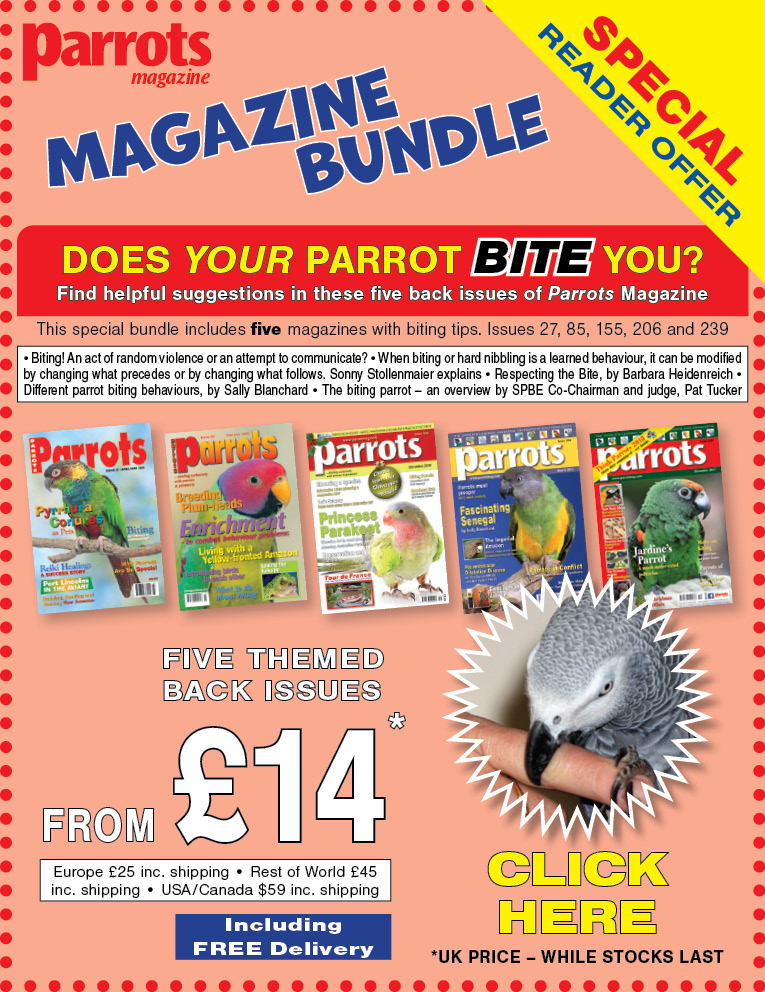

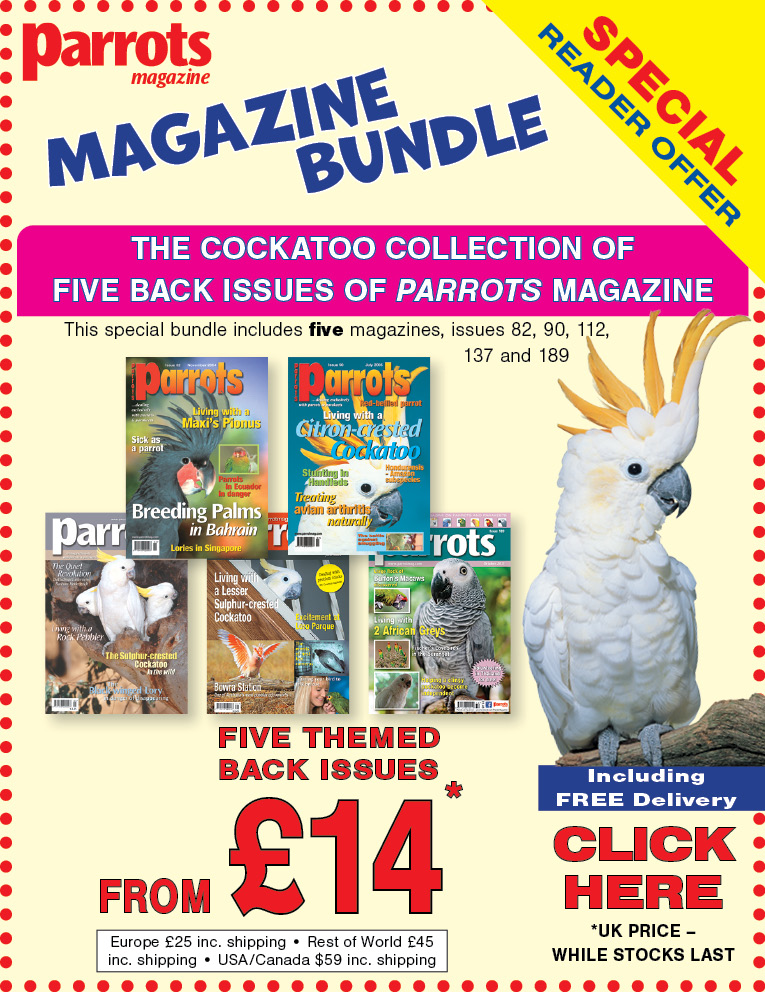
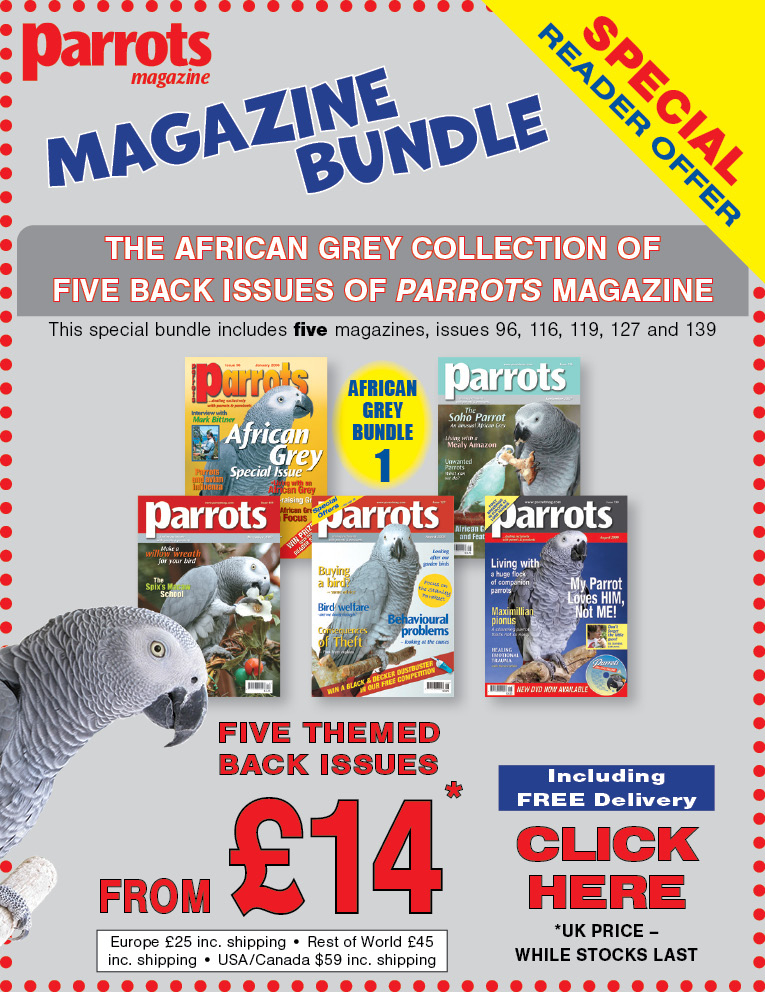
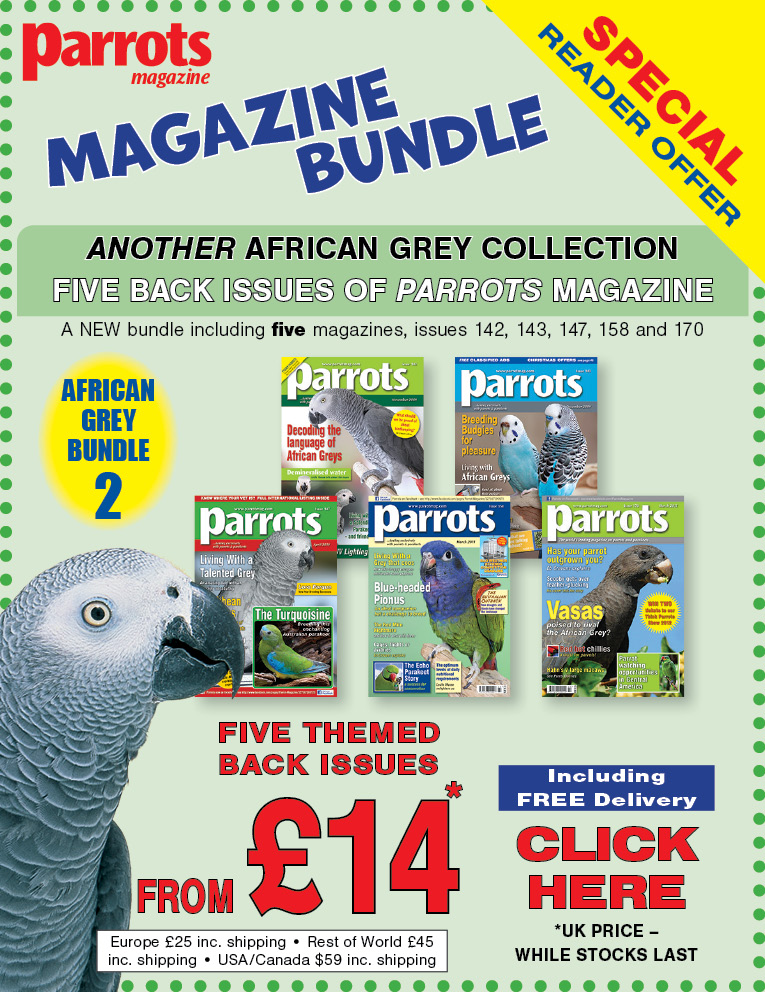
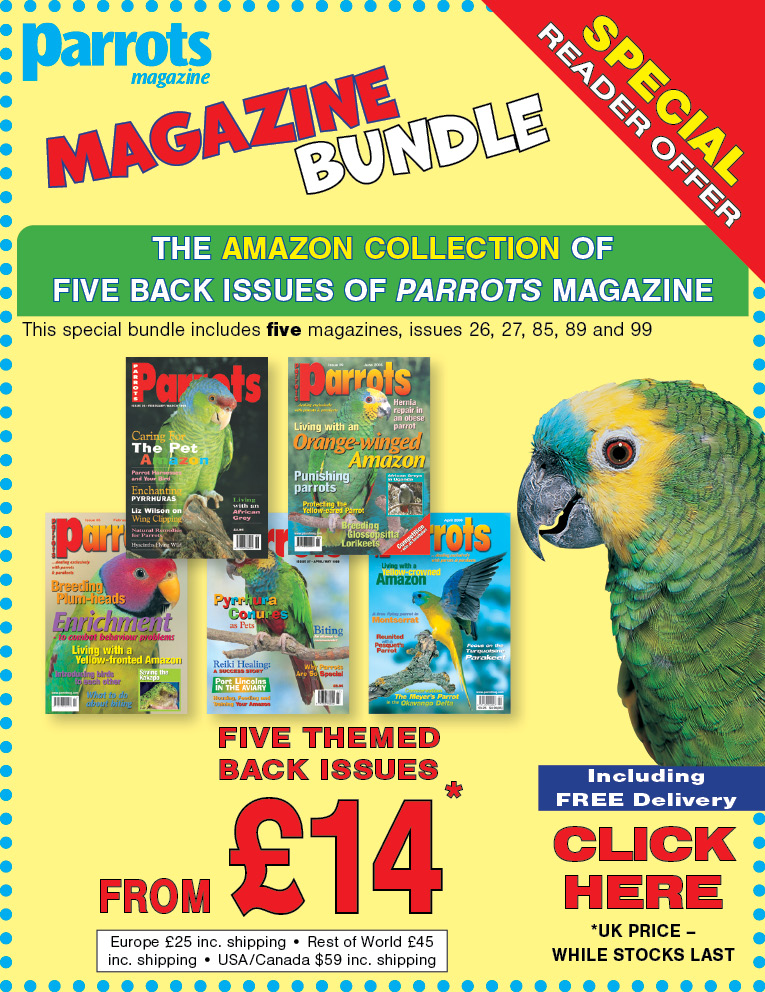

Parrot Chat
Buyers Guides
Breeding articles